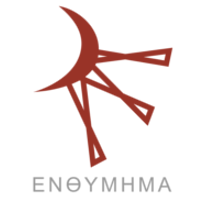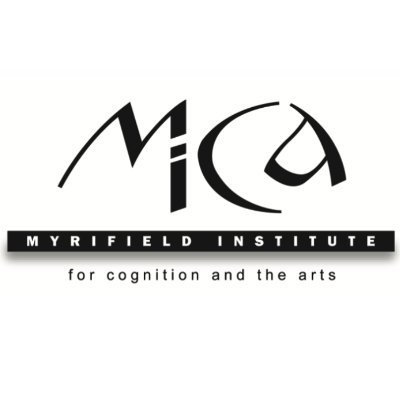CFP: Cognitive Future in Humanities 2016
University of Helsinki, Finland
13-15 June 2016
http://blogs.helsinki.fi/coghum-2016/
Organisers:
Merja Polvinen
Karin Kukkonen
In cooperation with:
Department of Modern Languages, University of Helsinki
Federation of Finnish Learned Societies
Confirmed plenary speakers:
Peter Garratt (Durham)
Pirjo Lyytikäinen (Helsinki)
Anne Mangen (Stavanger)
Jean-Marie Schaeffer (CNRS)
Deirdre Wilson (UCL)
Building on the conferences associated with the network Cognitive Futures in the Humanities in Bangor (2013), Durham (2014) and Oxford (2015), the 2016 conference in Helsinki aims once again to bring together a wide array of papers from the cognitive sciences, philosophy, literary studies, linguistics, cultural studies, critical theory, film, performance studies, musicology and beyond.
In accordance with the original purpose of the network, the aims of the conference are:
(1) to evolve new knowledge and practices for the analysis of culture and cultural objects, through engagement with the cognitive sciences
(2) to assess how concepts from the cognitive sciences can in turn be approached using the analytical tools of humanities enquiry (historical, theoretical, contextual)
(3) to contest the nature/culture opposition whose legacy can be identified with the traditional and ongoing segregation of scientific and aesthetic knowledge.
We continue to examine these issues through a variety of approaches from cognitive sciences and the humanities, and draw on methods ranging from quantitative research to critical theory. The topics studied include mindreading or mentalizing, embodiment, ‘bio’ narratives and biocentrism, perception and memory, affect and emotion, performance, movement and kinesis, subjectivity/qualia and the narrated self, conceptual blending, multimodality, linguistic creativity and figurative language, bilingualism/multilingualism, translation and digital text processing.
To examine these and other related phenomena, we invite proposals addressing e.g. the following questions:
- How are cognitive universals related to sociohistorical particulars?
- What changes have taken place in conceptualisations of cognition, and what are the connections of those changes to cultural and historical contexts?
- What can the cognitive humanities do to further our understanding of fictionality, modelling and the imagination?
- What is the next step in the study of affect and audience empathy?
- What consequences does the digitalisation of learning environments have on reading comprehension?
- What is the current state of the relationship between the different modes of studying language and texts in cognitive linguistics, psycholinguistics and cognitive literary study?
- How does the enactive cognition paradigm engage contemporary narratology – e.g. the poetics of unnatural narratives?
- What is the role of empirical projects within cognitive humanities?
We are also particularly interested in presentations that take into account the recent debates and developments within the cognitive sciences – e.g. the so-called second-generation or 4E approaches, which argue that cognition is embodied, embedded, enactive and extended. How can research in the humanities benefit from as well as further develop such a view of human thought and experience?
Pre-Conference Workshop (11-12 June 2016)
“Digitisation and Cognition: Joint Futures for the Humanities?”
The pre-conference workshop for PhD students and early-career scholars investigates the potential connections between two areas which promise new perspectives for the humanities: cognitive approaches and digital humanities. What is their respective status as method, approach and heuristics? How can they inform each other? Can cognitive, empirical approaches to reading offer insights on the progressive digitisation of reading (and other cultural practices)? Can the digital technologies of corpus search, ngrams, etc. unlock new methods for the cognitive humanities? These and related questions about reading and digitization will be discussed together with Anne Mangen (Stavanger) and Caroline Bassett (Sussex/HCAS), and workshop participants will be invited to present their work (or planned work) on the intersection between the digital and the cognitive.
Venue
The University of Helsinki is Finland’s largest and most versatile university, and a member of the League of European Research Universities (LERU). Its central campus is located in the very heart of Helsinki, within walking distance of several hotels and the major sights of the neo-classical city centre. For more information on the University please seehttps://www.helsinki.fi/en, and for the city of Helsinki, http://www.visithelsinki.fi/en.
Submission Details
We will be accepting submissions for both individual papers and pre-formed panels. Innovative panel and round-table formats are particularly welcome. For individual papers please send 250-word proposals to coghum-2016@helsinki.fi by 6th January 2016. For pre-formed panels and workshops, please submit individual abstracts as well as a summary paragraph. We will consider only one individual paper per scholar, but it is possible to send both an individual abstract and a full panel proposal, should you wish to do so.
For the pre-conference workshop “Digitisation and Cognition: Joint Futures for the Humanities”, please send a 250-word abstract of your (planned) work and how this relates to the workshop theme.
All submissions should be in Word file attachments, and include the title of the paper, the name of the presenter, affiliation and email address, as well as a short bio.
For more information on submissions or any other aspect of the conference, please visit http://blogs.helsinki.fi/coghum-2016/, or contact the organisers at coghum-2016@helsinki.fi.
Looking forward to welcoming you to Helsinki!
Merja Polvinen & Karin Kukkonen









